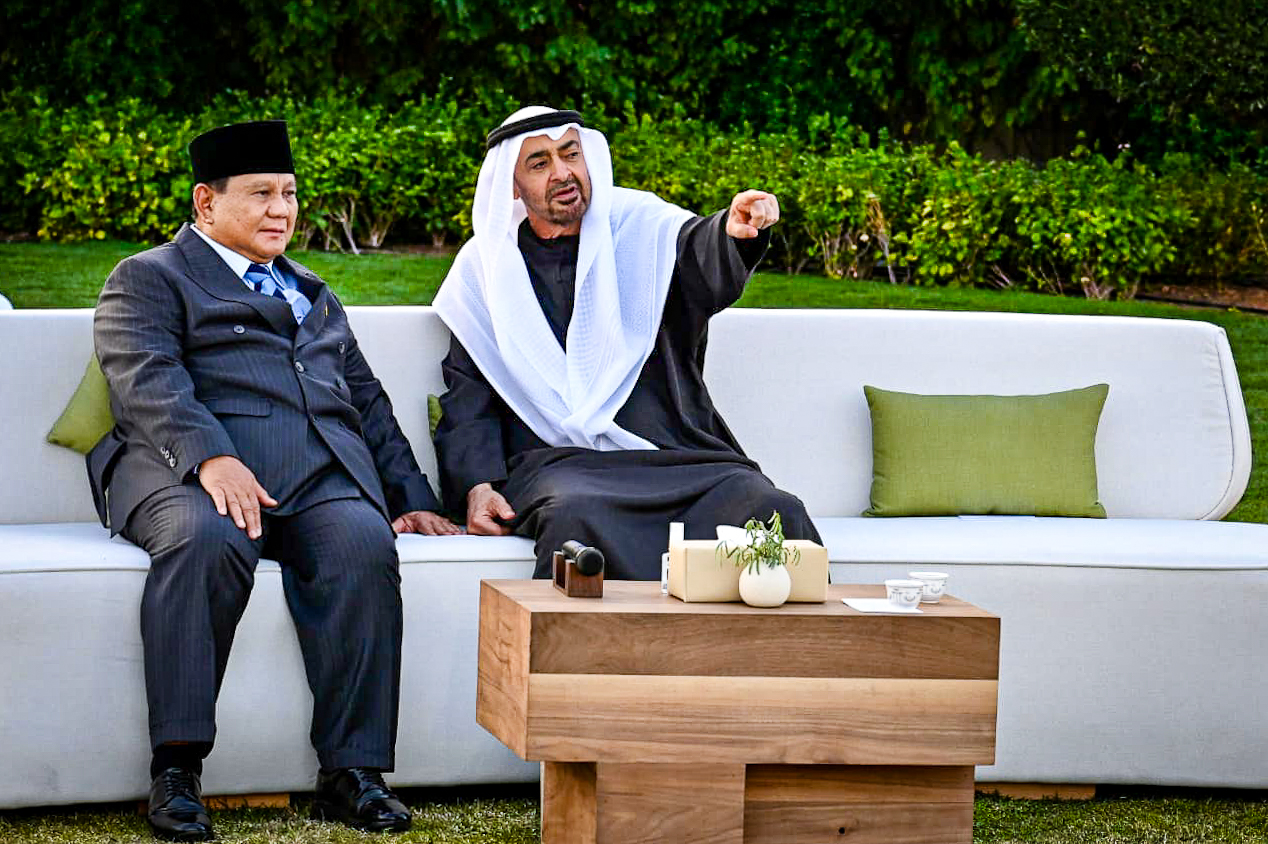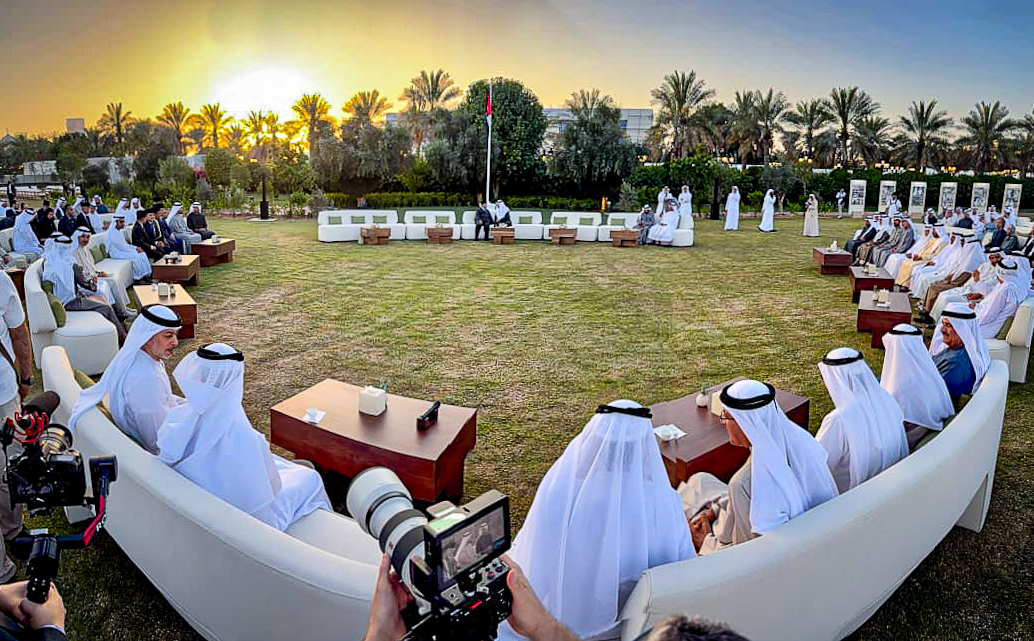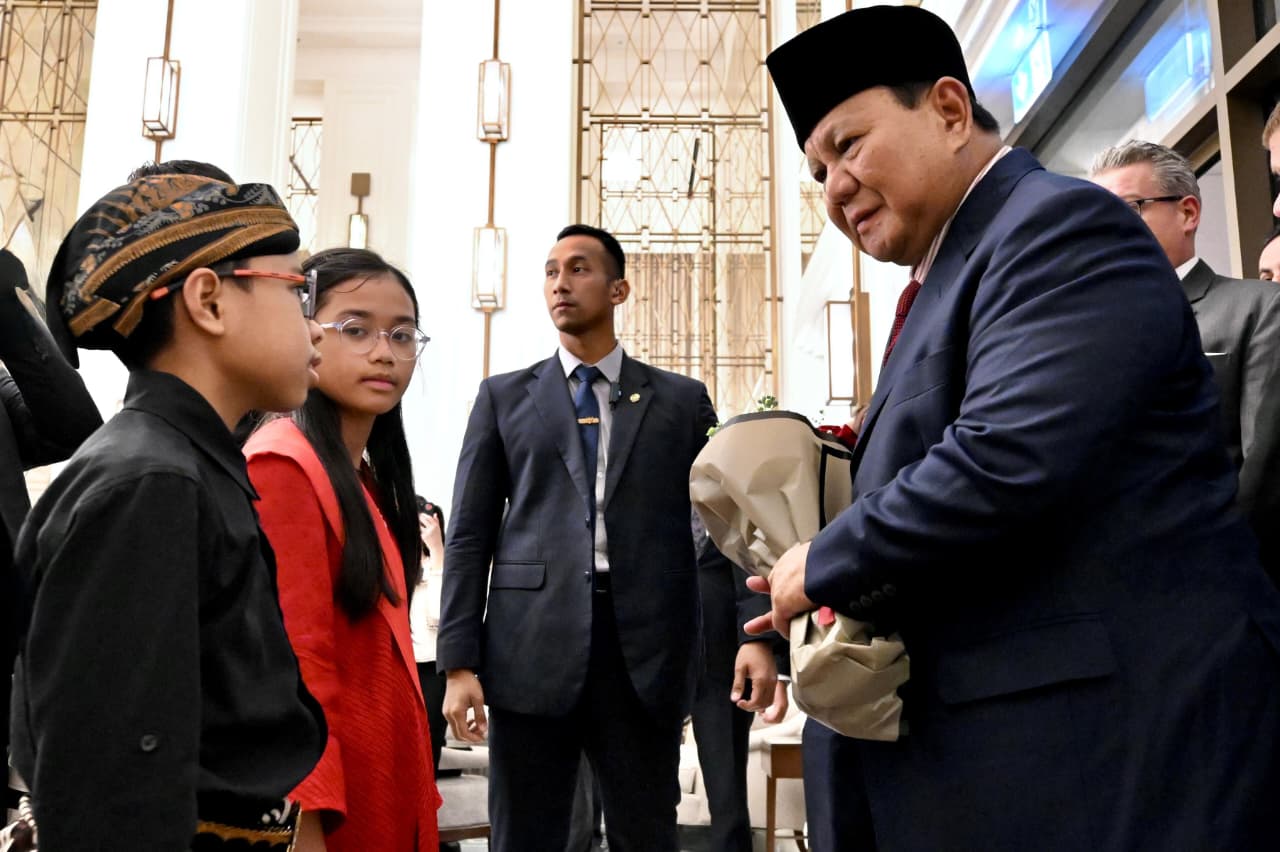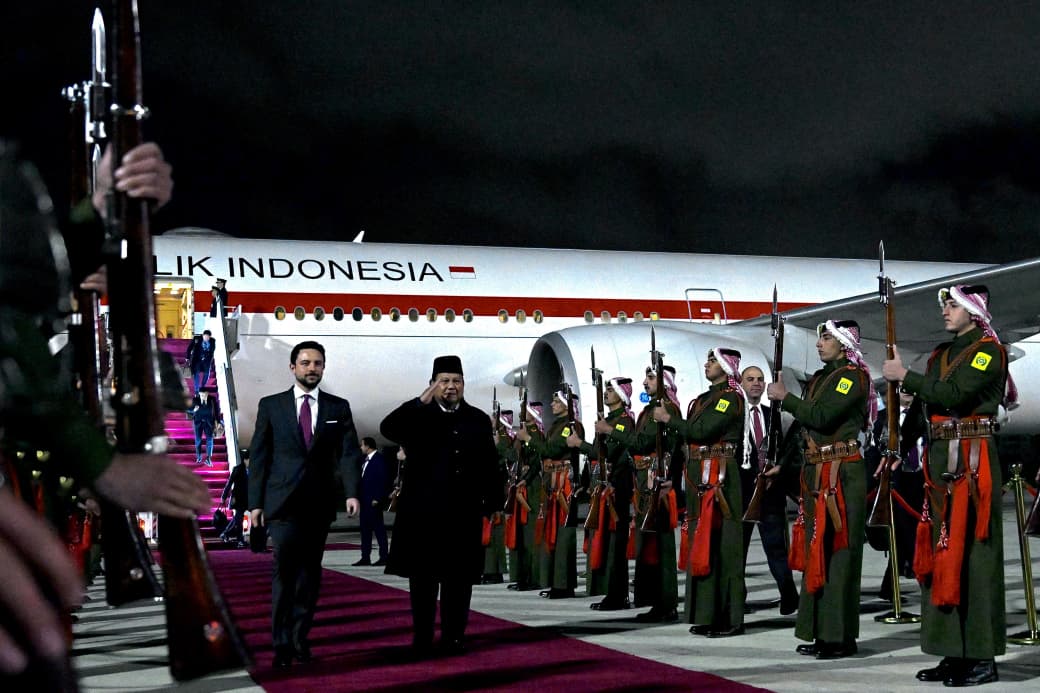President Jokowi Promotes Support for Independence of Palestine in ASEAN-UN Summit
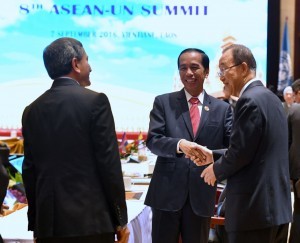
President Jokowi has a nice conversation with Secretary-General of the United Nations Ban Ki-moon on the sidelines of the ASEAN-United Nations Summit on Wednesday (7/9), at the National Convention Center, Vientiane, Laos
This year is the first year of the implementation of ASEAN Economic Community and the 2030 Agenda for Sustainable Development. Therefore, a partnership between ASEAN and the United Nations (UN) needs to be established, President Joko Jokowi Widodo stated in his speech before the ASEAN-United Nations Summit on Wednesday (7/9), at the National Convention Center, Vientiane, Laos.
President Jokowi also highlighted hundreds of millions ASEAN population still live below the poverty line. To address that problem, the President noticed the importance of vocational training, increasing productive capacity, empowering Micro, Small, and Medium Enterprises (MSMEs), and promoting inclusive financing. Thus, the President considered that ASEAN-UN partnership is highly important.
The second point in ASEAN-UN partnership, the President added, is relating infection prevention and control of infectious diseases cases. Therefore, cooperations on research, training, best practices sharing, early detection, and emergency measures need to be established.
On the issues of peace, President Jokowi reminded all on the Palestinian conflict. The President once again called on ASEAN and the UN to cooperate and promote or give support for the independence of Palestine and promote the negotiation of two state solution.
The Joint Action Plan
Indonesian Minister of Foreign Affairs said that the ASEAN-UN Summit has resulted Action Plan for the Implementation of Joint Declaration on Comprehensive Partnership between ASEAN and the UN for 2016-2020. That plan was adopted in Bali in 2011.
Based on that action plan, the cooperation covers 3 pillars: politics, economy, and culture, as well as intersectoral and intersecretarial cooperations. Thus, there are 5 main pillars in the Action Plan for the Implementation of Joint Declaration on Comprehensive Partnership between ASEAN and the UN, Retno said.
Retno also mentioned that in politics and security pillars, there are several sub cooperations to be carried out, for example, on the peace and security sectors, good governance, human rights, and democracy sectors. Regional and international issues will also become common concern.
Meanwhile, sub cooperation on ASEAN economic integration, MSMEs, food and agriculture, forestry, and energy security are included on the economy pillar. In social and culture pillar, cooperation on environment, climate change, mitigation and disaster management, education and culture, social welfare and human development, and health sector become the focus.
According to Minister Retno, intersectoral cooperation for ASEAN connectivity includes Initiative for ASEAN Integration (IAI) with the objectives of narrowing the development gap and cooperation for implementing the 2030 agenda.
The last pillar is intersecretarial cooperation that covers information exchange between desk officers in ASEAN Secretariat and the one in the UN Secretariat, strengthening the ASEAN Secretariat through capacity building, and other measures. These were the outcomes of the ASEAN-UN Summit. (EN/ES) (RAS/MMB/YM/Naster)





